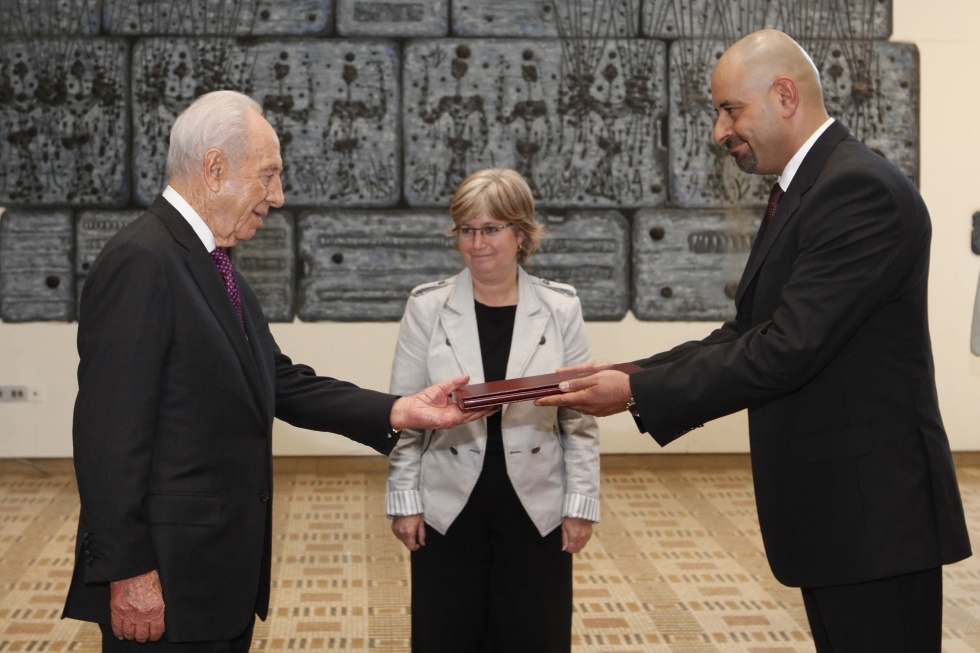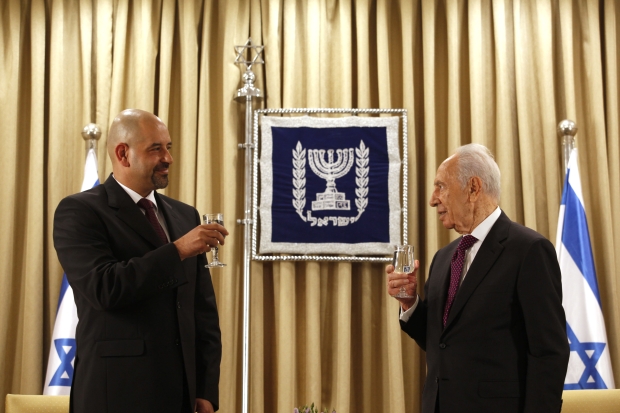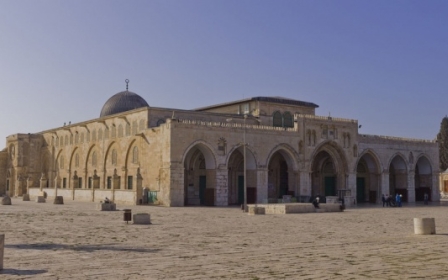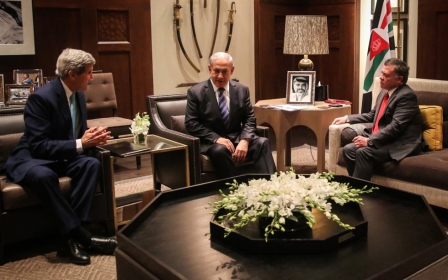Jordan envoy to return to Israel after three month recall

Jordanian Information Minister and government spokesman Mohamed al-Momani announced Monday that his country's ambassador to Israel Walid Obeidat would soon be returning to Tel Aviv.
The Jordanian government has noted a "positive development" in Israel's stance vis-à-vis East Jerusalem's flashpoint al-Aqsa Mosque, as the number of worshippers into the iconic house of worship has reached 65,000 on Fridays, al-Momani told the press on Monday.
Jordan's call for respecting the status quo in the holy mosque has reached the whole world, and Israel in particular, al-Momani said.
Last November, Amman recalled its ambassador to Israel to protest the latter's recent practices against Muslim worshippers in the Jordan-administered al-Aqsa Mosque complex.
The move came after a group of extremist Jewish settlers had forced their way into the mosque compound after Israeli forces clashed with Muslim worshippers.
Eyewitnesses said then that Israeli police had attacked worshippers and religious students outside the mosque complex, located in Jerusalem's Old City.
Jordanian oversight of Jerusalem's holy sites
At the time, Jordan had said that Israeli practices in Jerusalem were undermining its 1994 peace treaty with the self-proclaimed Jewish state, which had reaffirmed Jordanian oversight of Jerusalem's holy sites.
Jordan, where almost half the population of seven million is of Palestinian origin, has historical custodianship over the flashpoint site and other Muslim holy sites in Jerusalem.
Amman is also seen as a key player in Israeli-Palestinian peace talks, and King Abdullah II has repeatedly called on Israel to end "its unilateral action and repeated attacks" against Jerusalem's holy sites.
For Muslims, al-Aqsa represents the world's third holiest site. Jews, for their part, refer to the area as the "Temple Mount," claiming it was the site of two Jewish temples in ancient times.
After Obeidat's recall, Israeli Prime Minister Benjamin Netanyahu made a rare visit to Jordan for tripartite talks with Abdullah and US Secretary of State John Kerry to contain the diplomatic fallout.
Obeidat, a career diplomat, first went to Tel Aviv in October 2012, filling a position that had been vacant since mid-2010 when his predecessor was named to a cabinet post in Amman.
Despite pressure from main aid donor Washington, Amman was reluctant to fill the position because of what officials at the time said was Israeli policies towards the conflict with the Palestinians.
Obeidat's appointment in September 2012 had angered his tribe, one of the largest in Jordan, as well as the Muslim Brotherhood, the country's main opposition group.
New MEE newsletter: Jerusalem Dispatch
Sign up to get the latest insights and analysis on Israel-Palestine, alongside Turkey Unpacked and other MEE newsletters
Middle East Eye delivers independent and unrivalled coverage and analysis of the Middle East, North Africa and beyond. To learn more about republishing this content and the associated fees, please fill out this form. More about MEE can be found here.





